Content marketing is no longer just about writing great blog posts or sharing on social media.
It’s a complex, data-driven discipline powered by artificial intelligence, multichannel strategies, and ever-evolving consumer behavior.
Marketers now juggle content personalization, SEO optimization, analytics, and cross-platform publishing all at scale.
With more competition and a shorter attention span to work with, the only way to stay ahead is by leveraging the right technology.
That’s where top content marketing tools come in.
Whether you're a solo marketer, a small business owner, or a part of a full-scale marketing team, your tech stack is now central to success.
Tools that automate repetitive tasks, generate AI-powered insights, or streamline your content calendar can dramatically improve efficiency and return on investment (ROI). To stay ahead of the competition, many marketers turn to impactful creative service providers to refine their content strategies and maximize engagement across channels.
Additionally, collaborating with an offline marketing provider can complement your digital efforts, especially when focusing on local or event-based campaigns. Many also rely on white label local SEO services to enhance their SEO strategies and improve local search rankings.
Yet with so many options out there, finding the right ones can feel overwhelming, especially if you're working with limited budgets or trying to cut through content overload.
This guide explores the top content marketing tools in 2025, focusing on the platforms that are helping marketers create smarter, distribute faster, and measure better.
Book Your Free Expert Consultation!
What Are Content Marketing Tools?
Content marketing tools are software or platforms designed to help businesses create, manage, and optimize content marketing efforts.
These content marketing tools assist in streamlining various aspects of content creation, distribution, and measurement.
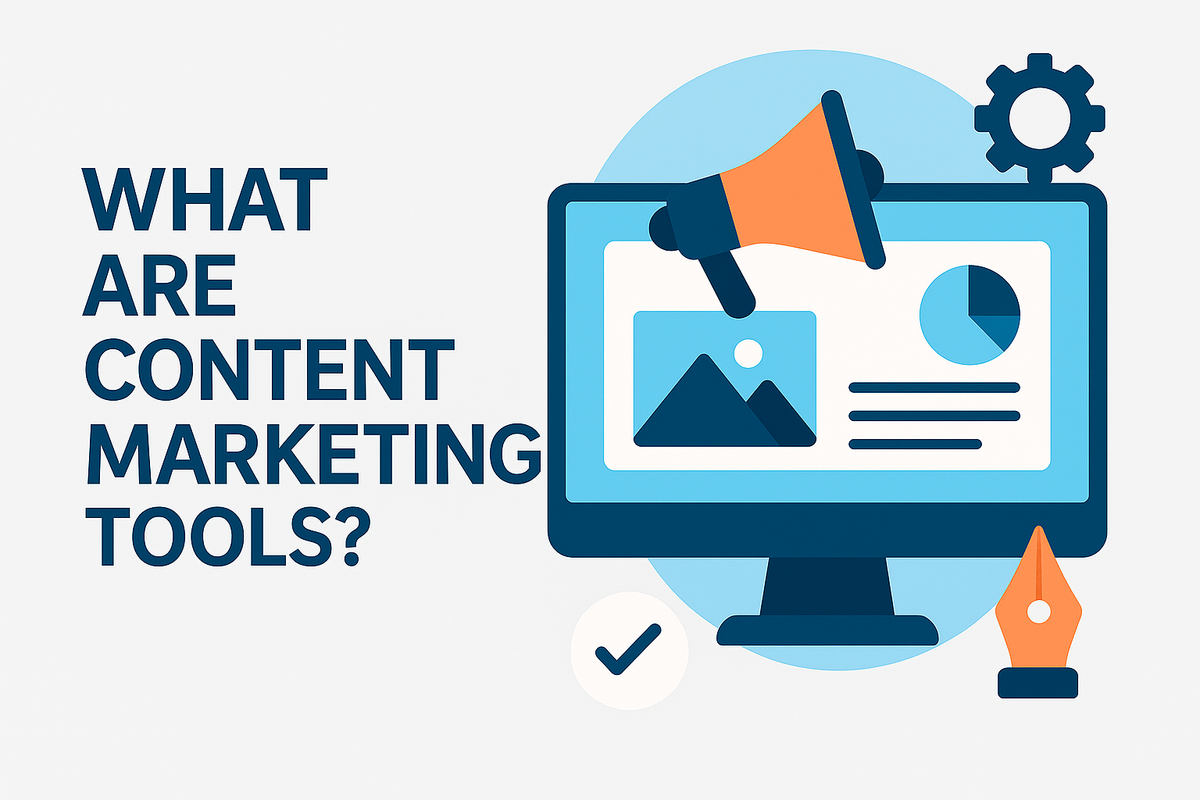
Popular content marketing software offers features for content planning, social media management, SEO optimization, and analytics.
Some content marketing platforms provide end-to-end solutions, enabling marketers to plan and execute campaigns, track performance, and refine strategies.
The best content marketing tools often include functionalities like content scheduling, automation, and performance tracking.
Content tools can help in content ideation, keyword research, and SEO, while content marketing platforms integrate these features for an all-in-one experience.
For businesses aiming to refine their approach, content strategy tools help in planning and organizing content efforts across multiple channels.
Top content marketing tools are typically those that offer the most robust set of features for increasing engagement and driving results.
In summary, tools for content marketing are essential for improving the efficiency and effectiveness of any content-driven marketing strategy.
Quick Overview of Top Content Marketing Tools
Here's an updated table summarizing the 23 top content marketing tools in 2025, along with their pricing information:
|
Tool |
Category |
Key Features |
Pricing |
|
Semrush |
SEO, Content Marketing |
Topic Finder, SEO Brief Generator, AI Article Generator, Content Optimizer |
Pro: $117.33/month (billed annually) |
|
Ahrefs |
SEO |
Site Explorer, Keyword Explorer, Site Audit, Rank Tracker, Content Explorer |
Lite: $99/month |
|
Jasper |
AI Writing Assistant |
Long-form content generation, Ad copy, Email creation, Social media updates |
Pro: $59/month (billed annually) |
|
Grammarly |
Writing Assistant |
Grammar checks, Plagiarism detection, Tone adjustments, Vocabulary enhancement |
Pro: $12/month (billed annually) |
|
Hemingway Editor |
Writing Assistant |
Readability improvement, Passive voice check, Sentence structure suggestions |
Free (online version); Plus: $19.99 (one-time desktop purchase) |
|
Surfer SEO |
SEO |
On-page analysis, SERP Analyzer, Content Editor, Content Planner |
Essential: $79/month (billed annually) |
|
Canva |
Design, Content Creation |
Magic Design, Magic Write, AI-powered design and content tools |
Free; Pro: $12.99/month |
|
BuzzSumo |
Content Research |
Trending topic discovery, Content gap analysis, Brand mentions |
Content Creation: $199/month |
|
Moz Pro |
SEO |
Keyword tracking, Site audits, Backlink analysis, Rank tracking |
Pro: $99/month |
|
Google Analytics 4 (GA4) |
Analytics |
Event-based tracking, Predictive metrics, User privacy controls, Enhanced reporting |
Free |
|
Google Search Console |
SEO, Website Monitoring |
Performance reports, Index coverage, URL inspection, Core web vitals monitoring |
Free |
|
Buffer |
Social Media Management |
Scheduling, Post publishing, Performance analytics, Social media integration |
Free; Essentials: $6.99/month |
|
Hootsuite |
Social Media Management |
Unlimited post scheduling, Social listening, AI-powered content tools |
Professional: $19/month |
|
Mailchimp |
Email Marketing |
Email templates, Audience segmentation, A/B testing, Analytics |
Free; Essentials: $13/month |
|
HubSpot Marketing Hub |
Marketing Automation |
Email marketing, CRM, Analytics, Workflow automation |
Free; Starter: $50/month |
|
Trello |
Project Management |
Task management, Kanban board, Deadline tracking, Collaboration features |
Free; Business Class: $10/month |
|
Asana |
Project Management |
Task creation, Deadline setting, Reporting, Resource management, AI features |
Basic: Free; Premium: $10.99/month |
|
Notion |
Workspace/Project Management |
Notes, Databases, Calendar, AI content generation, Workflow organization |
Free; Plus: $8/month
|
| Text Replacer | Content Editing & Optimization | Find/replace words/phrases across content, bulk operations, preview changes, maintains formatting & brand voice | Free (unlimited) |
| Keyword Research | SEO & Content Research | Generates high-performing keywords from seed topics, intent clustering, long-tail variations, difficulty scores, spreadsheet export | Free (unlimited) |
| Word Density Counter | Content Optimization & SEO | Instant word/phrase frequency breakdown (%), flags overused terms, visual charts, real-time re-scans for readability | Free (unlimited) |
| Text Cleaner | Content Editing & Formatting | Removes extra spaces/line breaks/special characters, converts to lowercase, trims whitespace for clean, consistent text | Free (unlimited) |
| Text to Slug Converter | SEO & On-Page Optimization | Converts titles/phrases to URL-friendly slugs (lowercase, hyphenated, stop-word removal), batch processing, length/readability checks | Free (unlimited) |
23 Top Content Marketing Tools You Must Use in 2025
From AI-powered writing assistants and SEO platforms to social media schedulers and email marketing software, each tool listed below plays a unique role in building and managing effective content strategies.
Here are some of the top tools for content creation and optimization:
1. Semrush
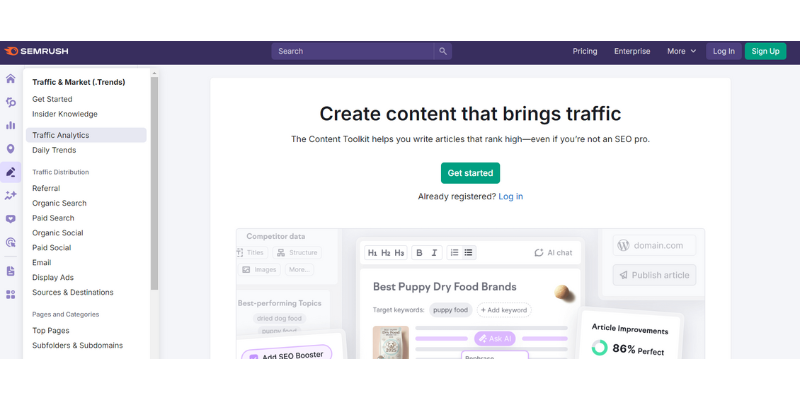
More than just an SEO tool, Semrush is a comprehensive content marketing suite packed with powerful SEO tools designed to elevate your digital marketing strategy.
This toolkit integrates Semrush's extensive SEO data with advanced AI capabilities to assist marketers in producing high-quality, search-engine-optimized content efficiently.
Key features include:
- Topic Finder: Identifies trending and relevant content ideas based on real-time search data.
- SEO Brief Generator: Crafts detailed content briefs with keyword recommendations, competitor insights, and search intent analysis.
- AI Article Generator: Produces original, long-form articles tailored to your brand's voice and optimized for SEO.
- Content Optimizer: Analyzes and enhances existing content for SEO performance, readability, and tone.
- Chrome Extension: Offers on-the-go writing assistance, including grammar checks and content rewriting.
These tools collectively enable marketers to efficiently create and optimize content that not only ranks well but also engages and converts their target audience. For businesses seeking to enhance their offline marketing materials, working with an offline print design provider can help create professional print assets that complement digital strategies."
2. Ahrefs

Ahrefs is a powerhouse for backlink analysis, keyword discovery, and site audits, making it an essential component of any effective digital marketing strategy. Its intuitive dashboard helps uncover search opportunities and monitor how content performs over time, supporting long-term SEO success.
It offers a suite of tools, including Site Explorer, Keywords Explorer, Site Audit, Rank Tracker, and Content Explorer, enabling users to analyze competitors, identify keyword opportunities, monitor rankings, and audit websites for SEO issues.
Ahrefs is particularly renowned for its vast backlink index and robust data analytics capabilities, making it a preferred choice for professionals aiming to improve search engine rankings and drive organic traffic.
Explore Our Digital Marketing Services!
3. Jasper (formerly Jarvis)
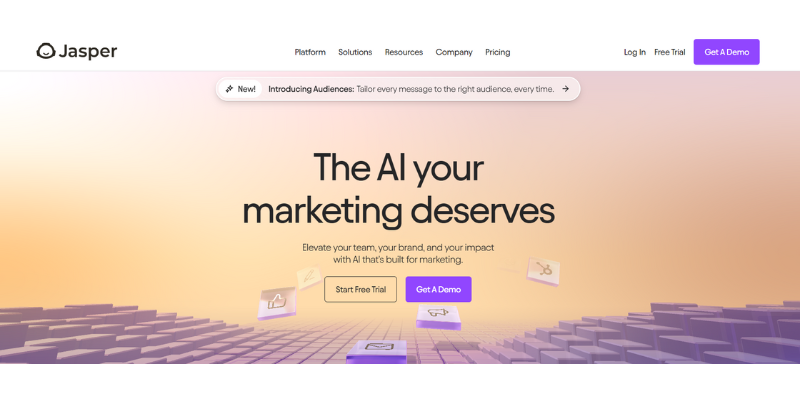
This AI-powered writing assistant is designed to generate long-form content like blog posts, ad copy, and emails based on short prompts.
Jasper helps marketers speed up their workflow by producing well-structured drafts in seconds. It leverages advanced language models to produce a wide range of content, including blog posts, social media updates, product descriptions, and more.
Jasper's user-friendly interface and customizable features make it accessible for both beginners and experienced content creators. Also, the platform offers various pricing plans to cater to different user needs.
4. Grammarly

Grammarly and Hemingway Editor are two prominent writing tools, each serving distinct purposes to enhance your writing. Grammarly functions as a comprehensive writing assistant, offering real-time grammar, spelling, punctuation, and style corrections.
It also provides tone detection, vocabulary enhancement, and plagiarism checking, making it suitable for a wide range of writing tasks, from emails to academic papers.
Available as a browser extension, desktop application, and mobile app, Grammarly ensures your writing is polished across various platforms. The free version covers basic grammar checks, while the premium version offers advanced features like tone adjustments and plagiarism detection.
5. Hemingway Editor
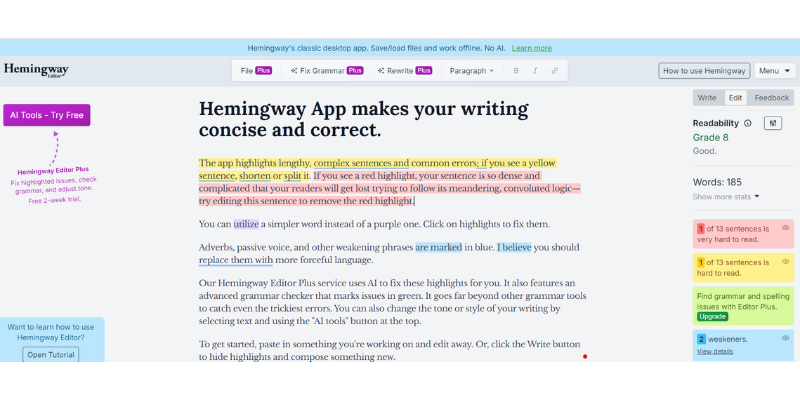
On the other hand, Hemingway Editor focuses on improving the readability and clarity of your writing. It highlights complex sentences, passive voice, and adverbs and suggests simpler alternatives, aiming to make your writing concise and easy to understand.
While it doesn't offer grammar corrections, Hemingway provides a readability grade to help you gauge the accessibility of your text.
The free online version is straightforward to use, requiring no account setup, whereas the desktop version, available for a one-time fee, offers offline access and additional export options.
For those seeking to refine their writing style and ensure clarity, Hemingway Editor is a valuable tool. Additionally, just as Hemingway helps clarify text, web design services for small business can enhance the clarity and user experience of your website, ensuring your digital presence is accessible and engaging.
6. Surfer SEO
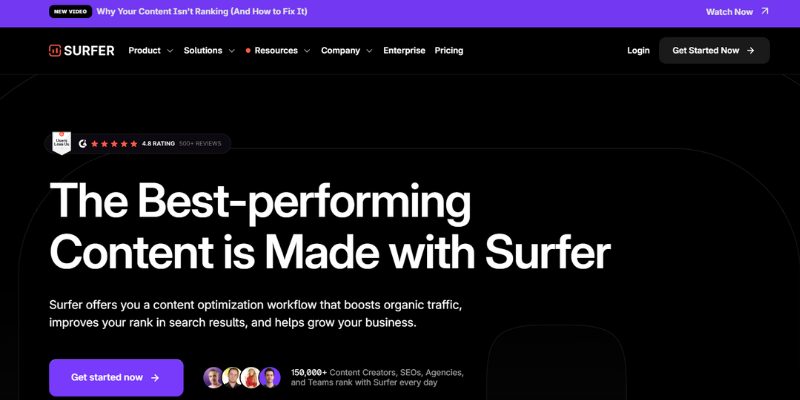
Surfer SEO is a comprehensive platform that offers in-depth analysis of over 500 on-page signals, including keyword density, content structure, and media usage.
It provides real-time recommendations through its Content Editor, helping users optimize their content for higher rankings.
Additionally, Surfer SEO includes features like SERP Analyzer, Content Planner, and AI-powered writing assistance, making it suitable for SEO services professionals and content marketers seeking detailed insights and optimization tools.
7. Canva (with AI features)

Canva has integrated a suite of AI-powered tools within its Magic Studio to enhance user creativity and streamline graphic design, especially for non-designers.
These tools include Magic Design, which generates layouts based on prompts or images; Magic Switch, for automatically converting content across formats and languages; and Magic Edit, which allows intelligent photo alteration.
Magic Write serves as Canva's built-in AI writing assistant for content creation. While some tools are available for free with limited usage, most features, including advanced options like Magic Switch, Magic Eraser, and Magic Morph, require a Canva Pro or higher plan. These AI enhancements empower users to execute complex design and content tasks quickly, making Canva an accessible solution for diverse creative needs. For businesses looking to refine their visual identity, integrating brand design services into the process can further elevate the overall impact of your design efforts.
The integration of AI tools aims to democratize design, enabling individuals and teams to produce professional-quality visuals without extensive design expertise.
8. BuzzSumo
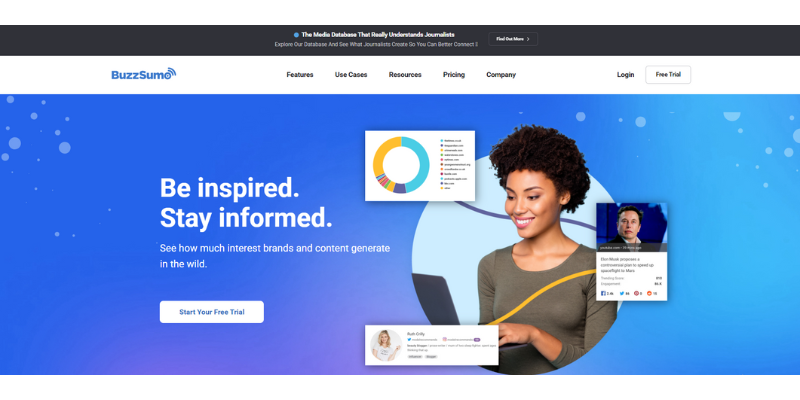
BuzzSumo is a comprehensive content marketing platform designed to help marketers discover, analyze, and amplify high-performing content.
It enables users to identify trending topics, uncover content gaps, and monitor brand mentions across the web.
BuzzSumo provides valuable insights into what resonates with audiences, facilitating the creation of data-driven content strategies. These tools represent the next generation of AI content tools for marketers, helping teams scale production without sacrificing quality.
9. Moz Pro
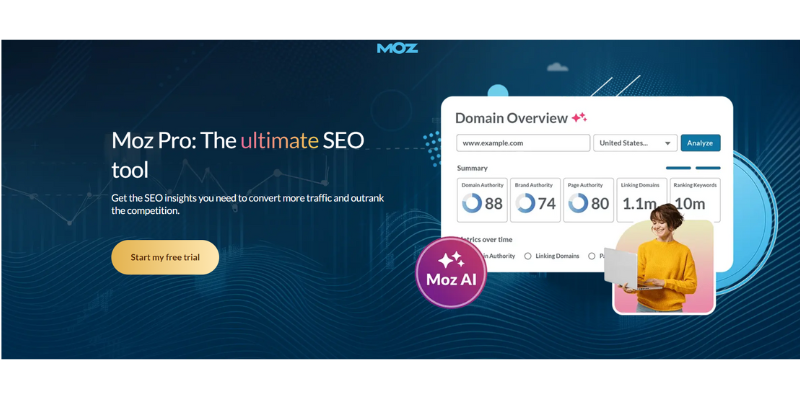
Moz is known for its user-friendly tools and extensive educational resources. It provides keyword tracking, on-page SEO recommendations, and link metrics.
Moz Pro offers a range of features, including keyword research, site audits, rank tracking, backlink analysis, and competitor insights.
The platform is particularly noted for its user-friendly interface and robust community support, making it accessible for both beginners and experienced SEO professionals.
Users generally appreciate Moz Pro for its comprehensive toolset and ease of use. The platform's keyword research and backlink analysis tools are particularly praised for their depth and accuracy.
Additionally, Moz Pro's site audit capabilities help identify and rectify technical SEO issues, contributing to improved website performance. For larger businesses, partnering with an enterprise SEO agency can help implement Moz Pro's insights more effectively, ensuring that the strategies align with larger-scale digital marketing goals. On the other hand, a digital marketing agency for small business can assist smaller companies in utilizing Moz Pro's insights in a way that is tailored to their specific needs and budget.
10. Google Analytics 4 (GA4)

GA4 is essential for tracking how users interact with your content, making it a vital tool in B2B marketing strategies. From bounce rates to conversions, it provides a full picture of performance. Its new predictive insights help marketers anticipate user behavior.
Unlike its predecessor, Universal Analytics, which was primarily session-based, GA4 utilizes an event-based data model, allowing for more granular tracking of user actions such as clicks, scrolls, and purchases.
Key features of GA4 include:
- Unified Data Collection: GA4 enables the collection of data from both websites and mobile apps in a single property, offering a holistic view of the customer journey across platforms.
- Enhanced Reporting and Analysis: The platform introduces the "Analysis Hub," which provides customizable reports and advanced analysis techniques, allowing users to explore data in more depth and tailor insights to specific business needs.
- Predictive Metrics: Leveraging machine learning, GA4 offers predictive metrics such as potential revenue and churn probability, helping businesses anticipate future trends and make proactive decisions.
- Improved User Privacy Controls: GA4 is designed with a focus on user privacy, incorporating features like cookieless measurement and behavioral modeling to comply with data protection regulations.
- Integration with Google BigQuery: For advanced users, GA4 provides native integration with Google BigQuery, enabling the export of raw event data for complex analysis and reporting.
With these features, GA4 represents a significant advancement in analytics, offering businesses deeper insights into user behavior, improved privacy compliance, and advanced analytical capabilities.
11. Google Search Console
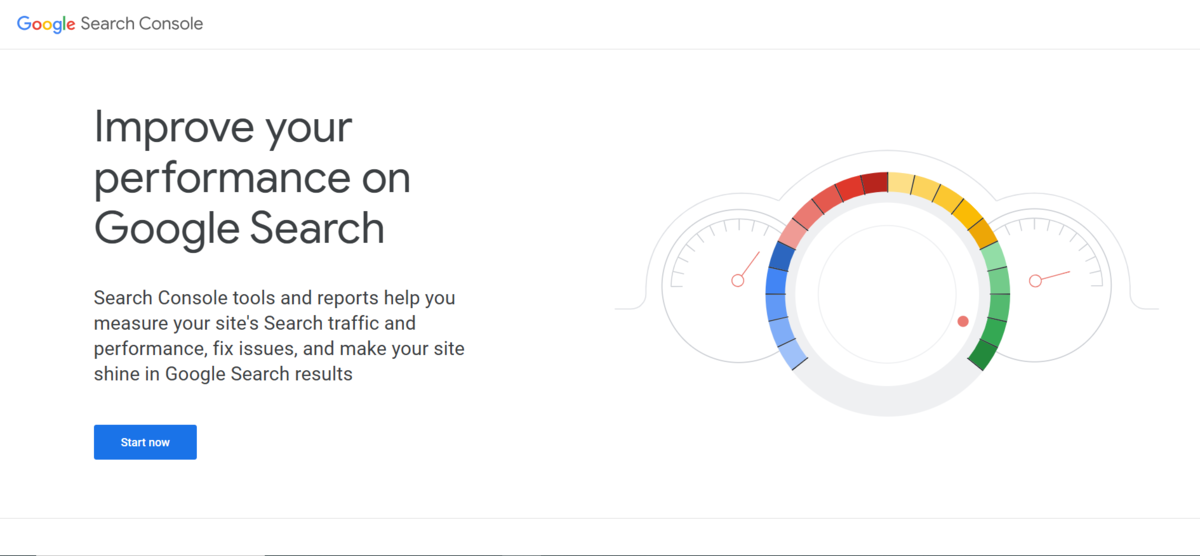
A free and indispensable tool, Google Search Console (GSC) plays a key role in digital transformation services by monitoring search visibility, indexing issues, and organic keyword performance ideal for quick technical checks.
It offers a comprehensive suite of features that allow users to understand how Google views their site, identify and fix issues, and optimize their content for better search performance.
For businesses looking to improve their online visibility, working with a B2B SEO company can help ensure that your site is properly optimized and free of issues that could hinder performance.
Key features include:
- Performance Reports: View data on your site's impressions, clicks, average position, and click-through rate (CTR) for specific queries and pages.
- Index Coverage: Monitor which pages are indexed by Google and identify any indexing issues that may prevent your content from appearing in search results.
- URL Inspection Tool: Analyze individual URLs to see how Googlebot crawls and indexes them, and request reindexing if necessary.
- Sitemap Submission: Submit XML sitemaps to help Google discover and crawl your site's pages more efficiently.
- Mobile Usability: Check for mobile usability issues to ensure your site provides a good experience on mobile devices.
- Security Issues: Receive alerts if Google detects any security issues, such as malware or hacking, on your site.
- Core Web Vitals: Monitor user experience metrics related to page loading performance, interactivity, and visual stability.
- Links Report: View information about external and internal links pointing to your site
To begin using Google Search Console, sign in with your Google account and add your website as a property.
You'll need to verify ownership of the site through various methods, such as adding a meta tag to your site's HTML, uploading an HTML file, or using your domain name provider.
Once verified, you can start exploring the tool's features and gaining insights into your site's performance in Google Search.
12. Buffer
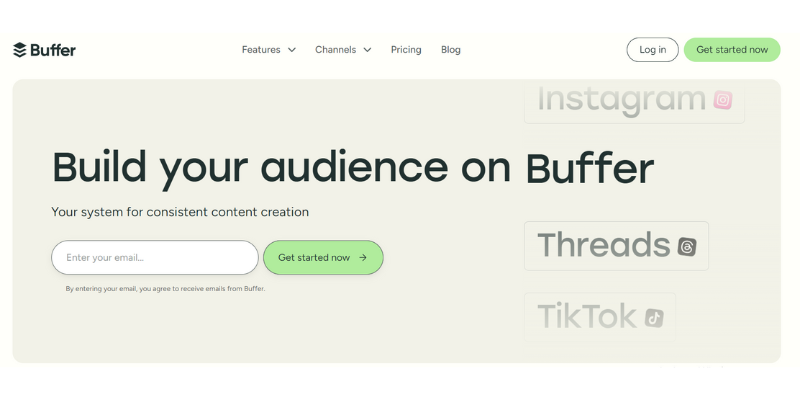
Buffer is widely loved for its simplicity and ease of use. It allows marketers to schedule and publish posts across multiple social platforms like Facebook, Instagram, Twitter, and LinkedIn from a single dashboard.
It enables users to schedule posts, engage with audiences, analyze performance, and collaborate effectively across multiple platforms.
Buffer supports a wide range of channels, including Facebook, Instagram, TikTok, X (formerly Twitter), LinkedIn, Pinterest, Threads, YouTube Shorts, Google Business Profile, and Mastodon.
The platform offers a free plan allowing users to connect up to three social channels and schedule up to 10 posts per channel.
13. Hootsuite
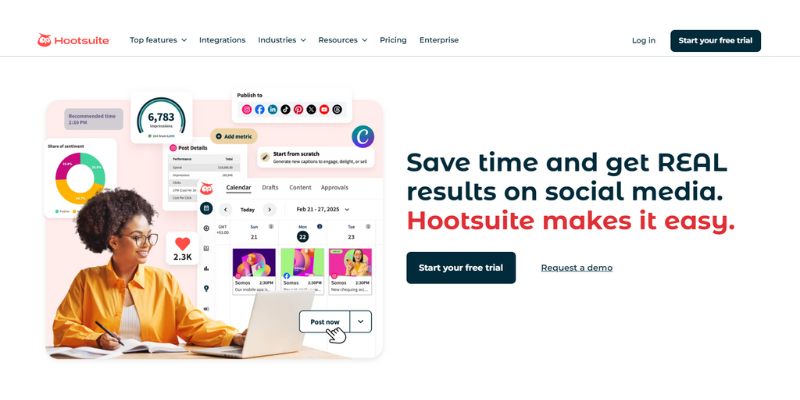
As one of the oldest players in the space, Hootsuite offers a comprehensive suite of tools.
It supports integrations with major networks like Facebook, Instagram, X (formerly Twitter), LinkedIn, YouTube, TikTok, and Pinterest.
Key features include:
- Unlimited post scheduling
- Unified inbox for messages and comments
- AI-powered content generation tools
- Social listening capabilities
- Customizable analytics reports
Hootsuite's user-friendly dashboard allows for efficient content planning, team collaboration, and performance tracking, making it suitable for small businesses to large enterprises
14. Mailchimp
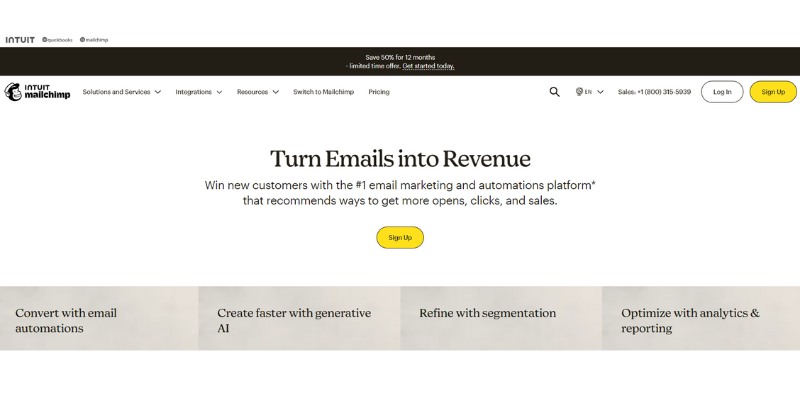
A popular choice for small to medium-sized businesses, Mailchimp offers an easy-to-use interface with customizable templates, audience segmentation, and basic automation.
It offers a range of tools, including customizable email templates, audience segmentation, A/B testing, and detailed analytics to enhance campaign performance.
Additionally, Mailchimp provides AI-powered features such as a creative assistant for design, predictive demographics for audience targeting, and smart recommendations to improve engagement.
15. HubSpot Marketing Hub
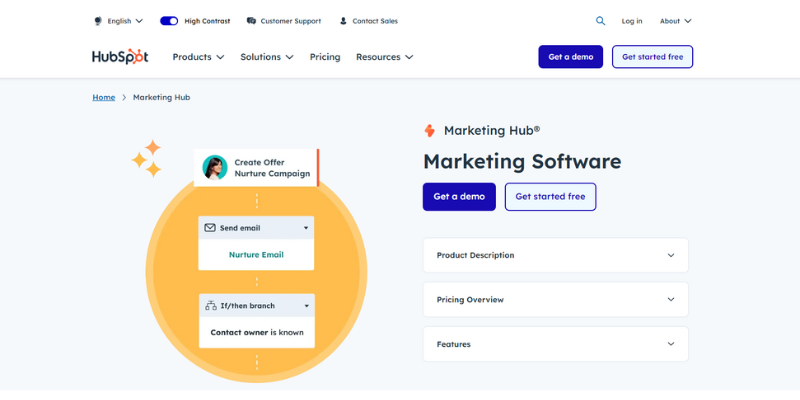
It is an enterprise-grade platform that seamlessly combines email marketing, customer relationship management (CRM), and advanced analytics in one unified solution.
It’s especially well-suited for marketing agencies and growing teams that require robust marketing automation capabilities.
HubSpot enables users to design personalized email campaigns, automate workflows, and track detailed performance metrics, all while maintaining a centralized view of customer interactions.
This integration helps streamline marketing efforts, improve lead nurturing, and ultimately drive higher ROI.
With its user-friendly interface and extensive support resources, HubSpot Marketing Hub remains a top choice for teams aiming to scale their content marketing operations efficiently.
These email marketing tools empower content marketers to build meaningful relationships, increase engagement, and maximize ROI through smart automation and personalized communication.
Additionally, landing page design services can enhance your campaign effectiveness by creating optimized landing pages that increase conversions and align with HubSpot’s powerful tools.
16. Trello
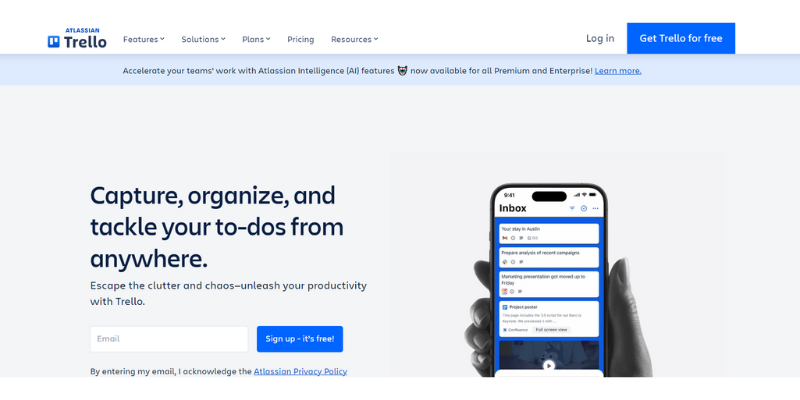
Trello is a visual project management tool developed by Atlassian, designed to help teams organize tasks using a Kanban-style board system.
Users create boards for projects, add lists to represent stages (e.g., To Do, In Progress, Done), and populate them with cards that contain tasks, deadlines, attachments, and checklists.
This intuitive layout facilitates collaboration, making it suitable for various teams, including marketing, engineering, design, and startups. Trello's flexibility allows users to adapt it to different workflows and project types.
Trello offers a free plan suitable for individuals or small teams, with Premium and Enterprise plans providing advanced features like unlimited automation, enhanced security, and AI tools.
17. Asana
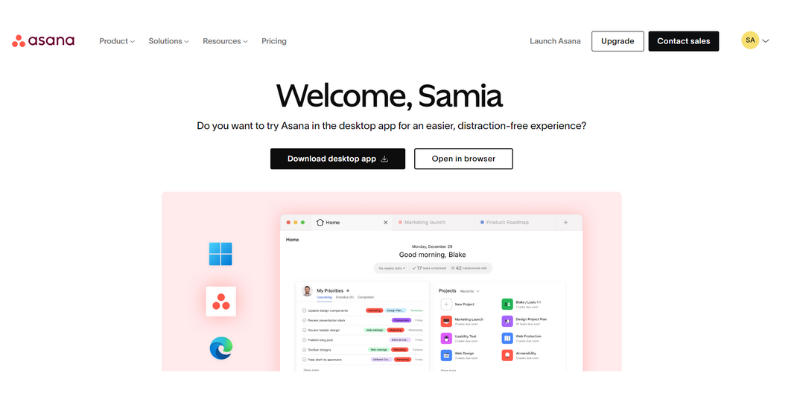
Asana is a comprehensive work management platform designed to help teams organize, track, and manage their work efficiently. It offers a range of features to streamline project planning and execution.
Teams can create tasks, assign responsibilities, set deadlines, and monitor progress through various views such as lists, boards, timelines, and calendars. Asana's flexibility allows for customization to fit different workflows and project types.
For businesses on a budget, incorporating cheap SEO services can further optimize your online presence alongside effective project management tools like Asana
Additionally, it provides tools for goal setting, reporting, and resource management, enabling teams to align their efforts with organizational objectives and track performance in real-time.
Beyond its core functionalities, Asana has integrated artificial intelligence to enhance productivity. The platform's AI capabilities assist in automating routine tasks, generating insights, and optimizing workflows.
For instance, Asana's AI Studio allows users to design AI-powered workflows tailored to their business processes. These AI features aim to reduce manual effort, improve decision-making, and accelerate project delivery.
Explore Our Content Marketing Services!
18. Notion
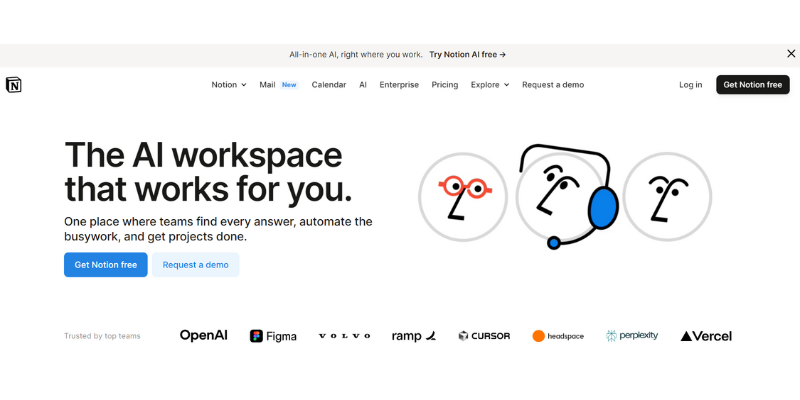
An all-in-one workspace, Notion combines notes, databases, and calendars.
It’s perfect for creating content briefs, maintaining editorial guidelines, and keeping all project details centralized. Its flexibility supports both simple and complex workflows.
In addition to its core features, Notion has incorporated artificial intelligence to enhance the user experience. Notion AI assists with tasks such as content generation, summarization, and translation, streamlining workflows and boosting productivity.
19. Text Replacer
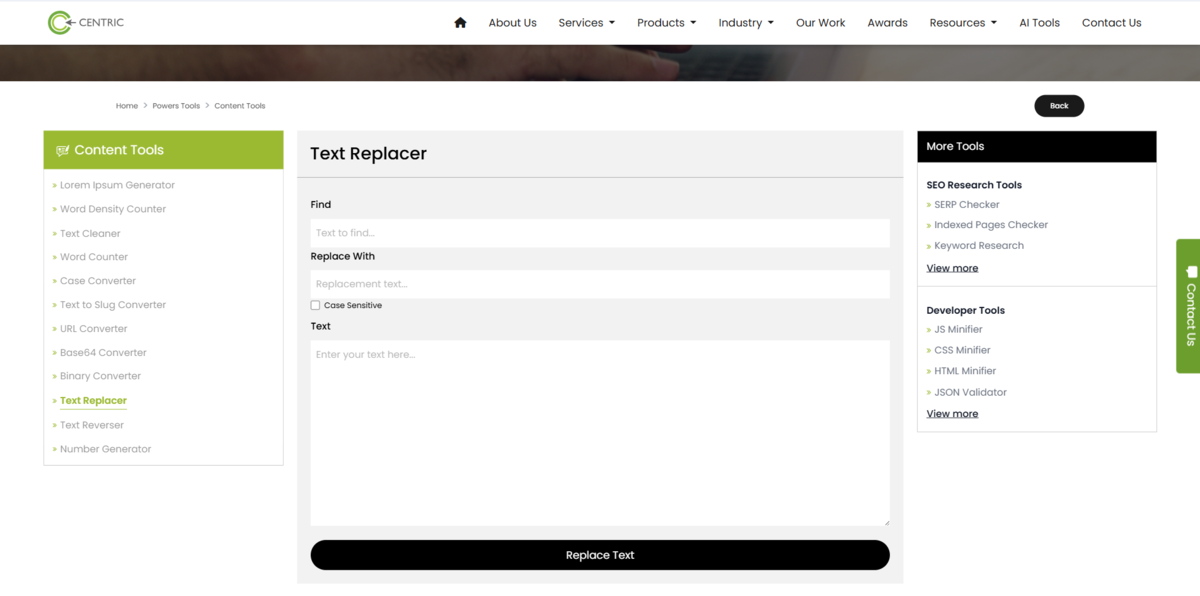
This Text Replacer tool lets you find and replace specific words or phrases across your entire content with just a few clicks. It scans your content quickly, highlighting matches and applying changes consistently to maintain brand voice.
Perfect for updating outdated terms in long-form guides or standardizing jargon in email campaigns. The process is straightforward: input the old text, enter the new version, and preview before finalizing.
It handles bulk operations without disrupting formatting, saving hours on manual edits. No complex setup required just paste your text and go.
20. Keyword Research
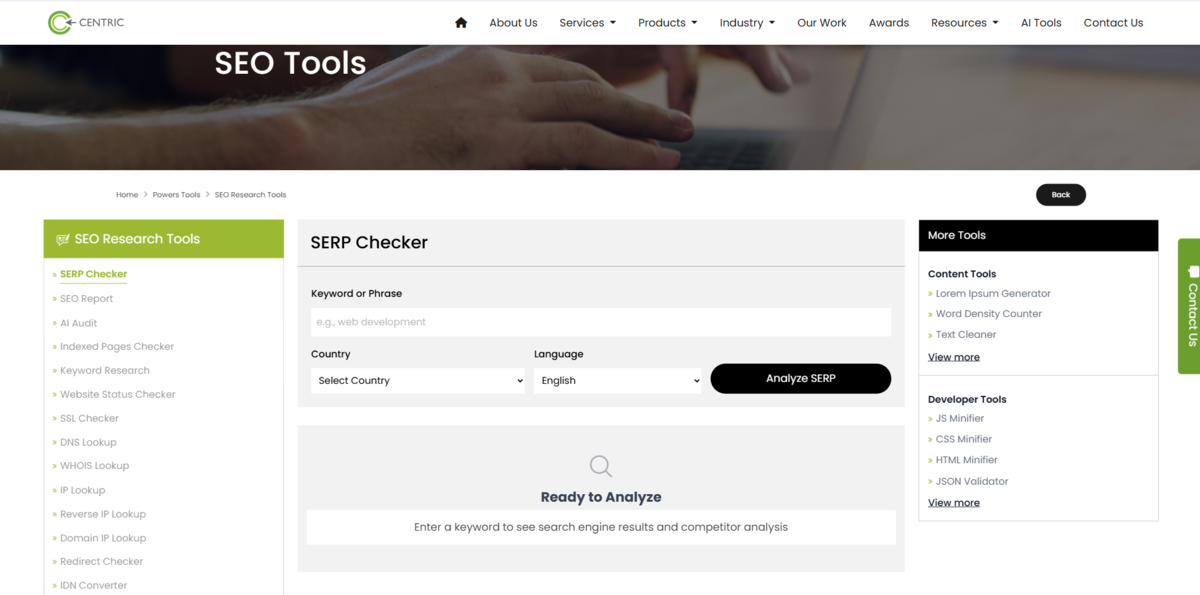
Enter a seed topic into this Keyword Research tool and it generates a list of high-performing keywords with search volume estimates. It clusters related terms by intent, helping you build content outlines that match user queries precisely.
The output includes long-tail variations for niche targeting, boosting relevance in competitive spaces. Run multiple queries side-by-side to compare opportunities and prioritize based on difficulty scores.
Results export easily to spreadsheets for integration with your content calendar. Start with broad ideas and refine to specifics for evergreen or timely posts.
21. Word Density Counter
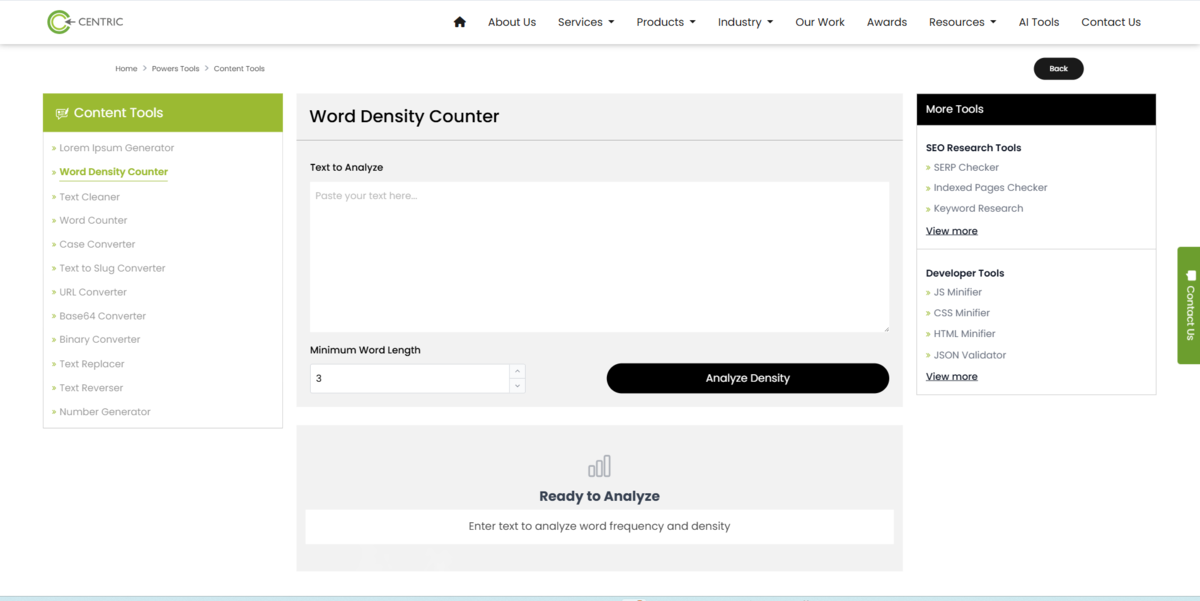
Paste your content in Word Density Counter tool and get an instant breakdown of word and phrase frequencies in percentages. It flags overused terms that could trigger SEO penalties, suggesting a balanced distribution.
Visual charts show density across sections, making it easy to spot repetitive patterns. Adjust your text on the fly and re-scan to track improvements in readability.
This ensures your content feels natural while incorporating key phrases effectively. Great for final proofs before publishing, especially in pillar content or series.
22. Text Cleaner
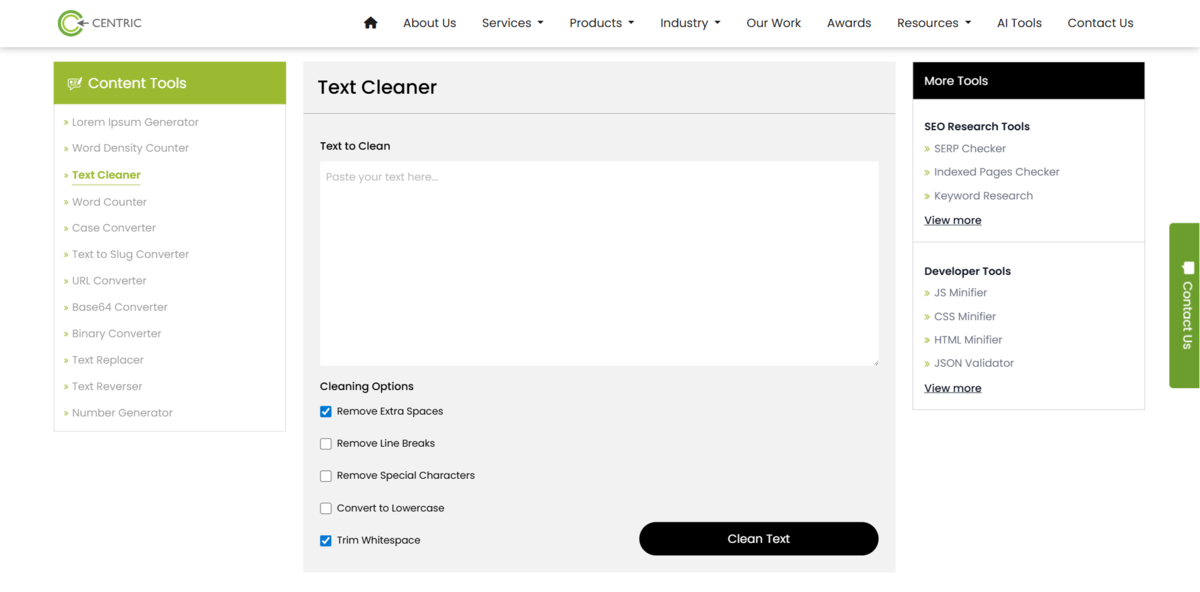
The Text Cleaner tool offers various cleaning options to refine your content. You can remove extra spaces to eliminate unnecessary gaps, remove line breaks for smoother text flow, and remove special characters that may interfere with readability.
It also provides an option to convert all text to lowercase for uniformity and trim whitespace by eliminating leading and trailing spaces. These features ensure your text is clean, consistent, and ready for publication or further processing.
23. Text to Slug Converter
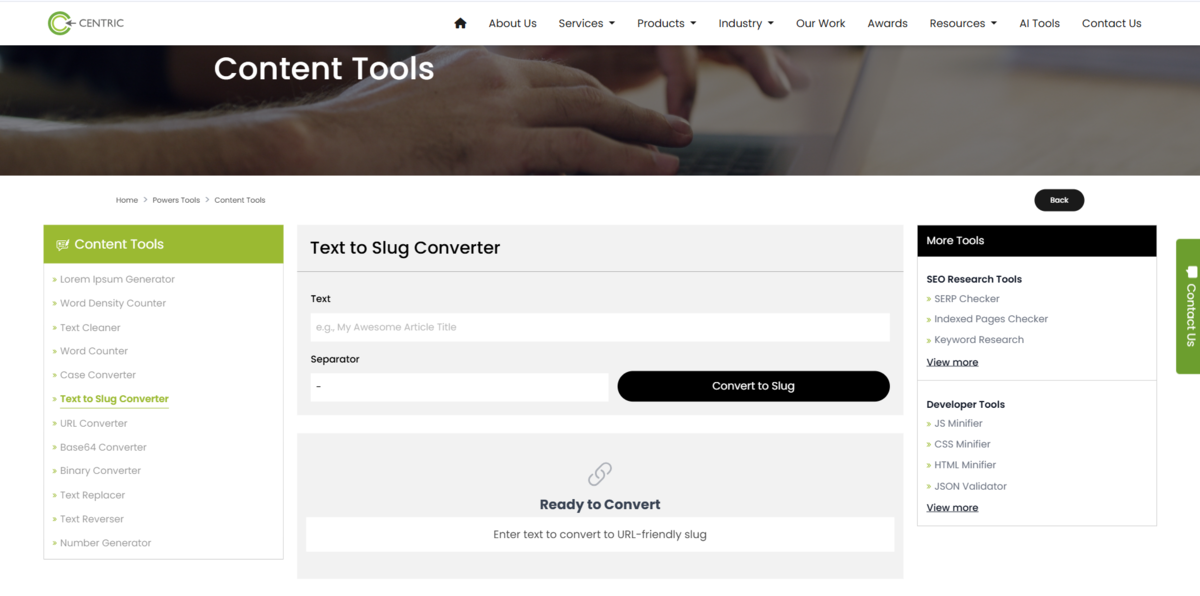
Enter any title or phrase into the Text to Slug Converter tool to generate a clean, hyphenated slug optimized for URLs. It lowercases everything, removes stop words, and preserves essential keywords for SEO.
Batch convert multiple headlines at once, copying results directly to your permalink field. The tool checks for length and readability, avoiding overly long or awkward strings.
This streamlines on-page setup, improving click-through rates from search results.
Criteria for Selecting Content Marketing Tools
With hundreds of platforms claiming to be the next big thing, choosing the right content marketing tools requires more than just browsing reviews or picking the most popular name.
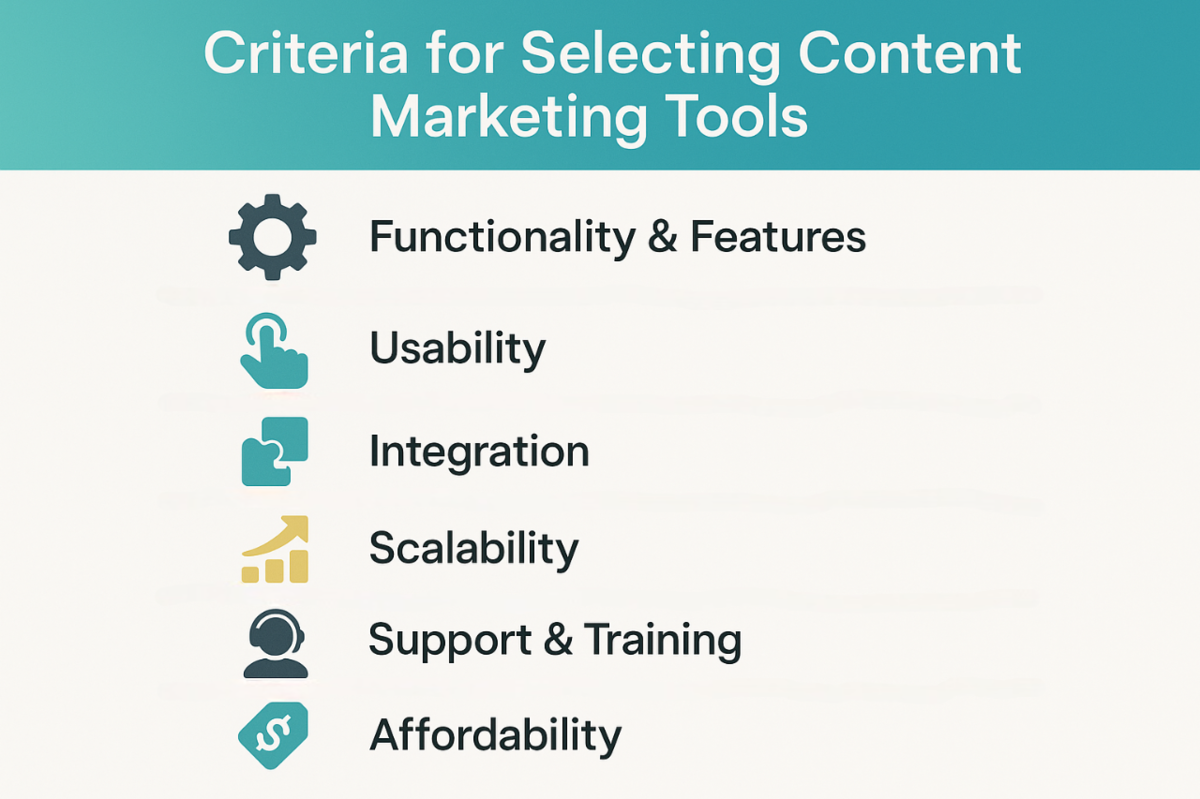
Whether you’re running a lean startup or managing a complex campaign for an agency, these are the key criteria to guide your decision:
1. Functionality & Features
Start by identifying your core needs: content creation, SEO services, analytics, scheduling, email automation, and more.
The best tools offer robust features in these areas and go a step further with advanced options like AI content suggestions, built-in keyword research, or dynamic dashboards.
2. Usability
A tool is only as good as your team’s ability to use it. Prioritize clean, intuitive interfaces and easy onboarding.
Platforms that offer customizable dashboards or templates tend to see higher team adoption and reduce the learning curve.
3. Integration
Your tools shouldn’t operate in silos. Make sure they integrate well with your existing CMS, CRM, or social platforms.
Seamless API connections with tools like WordPress, HubSpot, or Shopify can save hours of manual work.
4. Scalability
Choose tools that can grow with you, whether that’s supporting more users, campaigns, or content formats. Look for flexible pricing tiers or enterprise plans that won’t limit your growth.
5. Support & Training
Evaluate the quality of vendor support, documentation, and learning resources. Strong customer service and tutorials can make or break implementation success.
6. Affordability
Every dollar counts, especially for small businesses. Look for tools with free trials, freemium tiers, or transparent pricing models that align with your budget.
7. Collaboration
Finally, prioritize platforms that support team workflows, shared calendars, approval paths, or multi-user editing. These features are essential for distributed teams and agencies managing multiple stakeholders.
6 Emerging Tools & Trends in 2025
As content marketing continues to evolve, new tools and trends are reshaping how marketers create, distribute, and measure content in 2025.
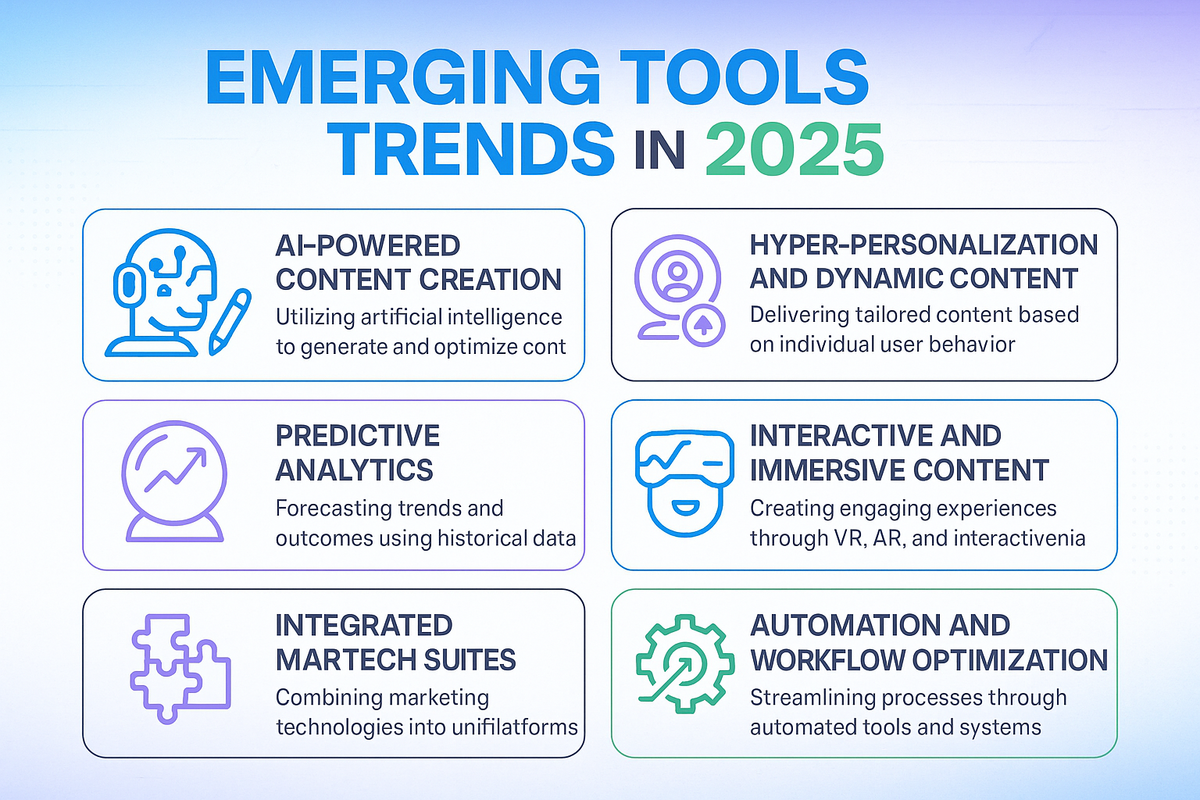
Tools that automate repetitive tasks, generate AI-powered insights, or streamline your content calendar can dramatically improve efficiency and return on investment (ROI). To stay ahead of the competition, many marketers turn to impactful creative services to refine their content strategies and maximize engagement across channels.
Staying ahead means embracing innovations that boost efficiency and engagement.
1. AI-Powered Content Creation
Generative AI tools, like ChatGPT and Jasper, have matured significantly, enabling marketers to produce blog posts, social media content, and even video scripts faster than ever before.
These AI assistants help overcome writer’s block and scale content production without sacrificing quality, making them especially useful for businesses offering B2C web development services that require frequent, high-quality digital content.
2. Hyper-Personalization and Dynamic Content
Advances in AI and data analytics enable hyper-personalized experiences at scale.
Marketers can now deliver dynamic website content, tailored email campaigns, and real-time social media messaging that resonate deeply with individual users, improving conversion rates.
3. Predictive Analytics
Next-generation analytics platforms use machine learning to forecast content performance and audience behavior.
Predictive insights guide marketers on where to invest their budget and how to optimize campaigns proactively.
4. Interactive and Immersive Content
Formats like quizzes, polls, 360-degree videos, and augmented reality experiences are becoming mainstream.
Tools that simplify creating interactive content help brands stand out and engage audiences more effectively, particularly for businesses offering ecommerce development services where user interaction and engagement directly impact conversions.
5. Integrated Martech Suites
Consolidation continues with platforms offering combined content creation, SEO, CRM, and marketing automation capabilities. This integration reduces tool sprawl and enables more cohesive data-driven strategies.
6. Automation and Workflow Optimization
Automation tools like Zapier and Integromat help streamline repetitive tasks such as publishing and reporting. Coupled with AI, these tools free up marketers to focus on strategy and creativity.
Embracing these emerging tools and trends will empower marketers to deliver smarter, faster, and more impactful content.
Get Your Free SEO Audit Report Today!
Choosing the Right Content Marketing Tools (Based on Goals, Team Size, Budget)
The first step in selecting content marketing tools is to clearly define your business objectives.
Are you focused on increasing brand awareness, generating leads, or boosting customer engagement?
For example, an oil and gas marketing firm focused on lead generation might prioritize tools that enhance content optimization and SEO analytics to better target potential clients. Conversely, social media-driven brands may need robust scheduling and monitoring platforms.
Next, assess your team size and workflow complexity. Smaller teams often benefit from all-in-one platforms that include built-in calendars and automation, simplifying their tech stack.
Larger teams with specialized roles might prefer dedicated tools tailored to specific functions like SEO, email marketing, or social media management.
Budget is a crucial factor. Align your tool investments with expected ROI and explore options offering free trials or tiered pricing.
For projects with limited budgets, affordable or freemium tools like MailerLite and Trello can still deliver essential capabilities without breaking the bank.
Usability testing is essential to trial prospective tools to ensure they fit your existing workflows and team preferences.
Don’t forget integration and support: confirm that your chosen tools seamlessly connect with your CMS, CRM, or email platforms. Good vendor support, including tutorials and training, can save time and headaches.
Finally, consider future growth. Select scalable tools that can handle increasing users, content volume, and feature needs. As your team or audience grows, your tools should easily upgrade without disruption.
Effective creative campaigns services can also guide you in choosing tools that align with your campaign needs and business growth.
FAQs
How do content marketing platforms assist with campaigns?
Content marketing platforms like HubSpot and Hootsuite streamline campaign management by helping you schedule, distribute, and analyze content, making your campaigns more efficient and effective.
Which content marketing software is best for small businesses?
For small businesses, affordable and user-friendly content marketing software such as Mailchimp, Trello, and Canva are ideal tools. These platforms help small businesses with content creation, scheduling, and marketing automation.
How do content tools improve efficiency in content marketing?
Content marketing tools automate repetitive tasks, provide actionable insights, and optimize SEO, enabling marketers to create high-quality content quickly and efficiently.
What features should I look for in content marketing software?
When selecting content marketing software, prioritize content creation tools, SEO optimization features, robust analytics, and seamless integration with other content marketing platforms.
Can content marketing platforms assist with cross-platform publishing?
Yes, content marketing platforms like Buffer and Hootsuite enable seamless cross-platform publishing, allowing you to schedule and distribute content across multiple channels, saving time and effort.
Conclusion
Choosing the right tool from Top Content Marketing Tools that covers content creation, SEO, social media management, email marketing, and planning is essential to building an efficient, results-driven strategy. For agencies and larger teams, collaborating with Creative Services providers can further enhance the development and execution of your campaigns, ensuring high-quality output and stronger engagement. Evaluating tools based on their functionality, ease of use, integration capabilities, and cost ensures you get the most value and maximize your return on investment.
As a next step, we encourage you to audit your current content marketing toolkit using the criteria outlined in this guide. Identify gaps, prioritize features that align with your business goals, and explore new tools that can help you work smarter, not harder. To help you on this journey, consider downloading our comprehensive comparison guide, trying free trials of the tools mentioned, or subscribing to our newsletter for the latest updates on marketing trends and technology. Remember, staying current with the emerging tools of 2025, especially those leveraging AI, personalization, and automation, will keep your content marketing competitive and effective in an ever-evolving digital landscape.









